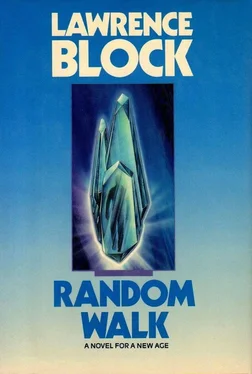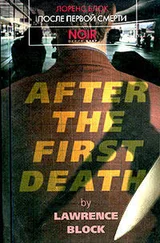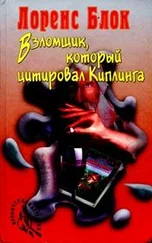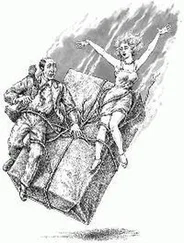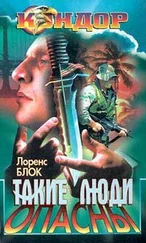There were half a dozen new walkers, in addition to the Lariat’s chambermaid, when they walked out of town late in the afternoon. It was on their account that Guthrie marched eastward for two and a half hours before making camp. He wanted the new people to walk far enough to get caught up in the group’s energy before settling in for the night. It wasn’t that he was afraid they’d drift away if they made camp closer to Belle Fourche — anyone who was supposed to be part of the group would stay part of the group, no matter where they spent the night. But it seemed to be easier for people to get into the rhythm of things when they started out putting one foot in front of the other.
“Just remember to alternate feet,” he had told Jody their first day together. And that was really all there was to it. The preparations, the supplies, became less important with the miles. Most of the people who’d been walking for more than a couple of weeks carried less than they’d set out with. Extra clothing tended to be passed out to those who’d come with only what they were wearing. If no one had a use for it, it would be abandoned at roadside, along with other items that turned out to be not worth their weight. Not everyone bothered to carry a canteen; some who had had them had lost theirs, and the newer people rarely troubled to obtain one. Someone else always had water to share, and there was often a stream you could drink from.
They were still on US 212, heading more or less due east across the state. At first, studying a state map while people showered at the Lariat, Guthrie had wanted to go down into the Black Hills and then on through the Badlands. He wanted to see Mt. Rushmore and the Crazy Horse monument, he wanted to walk through the surreal lunar landscape of the Badlands that he’d seen only in pictures. He traced a route through the old gold towns of Deadwood and Lead, down through Rapid City.
But it just didn’t feel right, and now he could see reasons to prefer the route they’d actually taken. At this time of year the Black Hills would be alive with the sound of tourists, and people by the hundreds would be camping in the Badlands, and you’d have to get in line and take a number to sneak a peek at Mt. Rushmore.
He still wanted to go there sometime. But it was important to keep one’s priorities in order. First you saved the planet. Then you saw the sights.
The healings went on. Scar tissue disappeared, replaced by new skin. Liver spots faded from the backs of hands. Gray hair grew in dark, and new hair sprouted in bald spots. Eyesight improved for almost everyone; eyeglasses and contact lenses became part of the roadside litter, and a rancher who’d joined the walk just before they crossed from Montana into Wyoming had his cataracts dissolve two nights out of Belle Fourche.
Inspired by Bud’s example, any number of people began growing new teeth. Mame Odegaard was cutting a whole third set, while others merely replaced missing teeth. One woman reported that a filling had fallen out, and wondered when they would come to a town large enough to support a dentist; she wanted to replace the filling before the tooth sustained further damage. The next morning she announced that she wouldn’t need a dentist; the hole was gone, the tooth having filled itself with new growth.
“Skin does that all the time,” Sara said. “Why should teeth be different?” And from that point on, fillings began loosening and falling out left and right, with the resulting cavities rarely remaining unfilled for more than a day.
Just past Mud Butte, where the highway doglegged to the right and began running due east, a crew from the workhouse labored to spruce up a roadside picnic area. Men in county-issue gray clothing painted tables and outhouses and stacked firewood, all under the supervision of a uniformed deputy with a shotgun. When the first of the walkers passed them, one of the prisoners put down his paintbrush and stared at the procession. After a few minutes he walked to the road and fell in step with a pair of walkers.
No one seemed to notice his absence. A few minutes later, two more men deserted and joined the parade. Soon there was only one left of the original eight prisoners, and as the tail end of the group drew even with him, he tossed a length of firewood onto the pile and trotted after them.
The deputy watched him go. He seemed unable to act, and stood motionless until the band of walkers was almost out of sight. Then he put his shotgun on a freshly-painted table, unpinned the star from his breast and set it down beside the gun, and took off after them. He walked at a brisk pace, and it didn’t take him long to catch up.
The next day, halfway between Maurine and Faith, a band of two dozen men, women and children waited patiently at an intersection. They were from Minot, North Dakota, they explained, all of them except a hitchhiker they’d picked up along the way who had decided to stay with them. They had heard the call and wanted to join. They had come down from Minot in three cars and a pickup truck, and they left the four vehicles at the side of the road, the doors unlocked, the keys in the ignition, in case somebody happened along with a use for them.
“Because we’re walkers now,” said the apparent leader, a wheat grower named Arne. “We would have walked down from Minot, but we got the call too late for that. We never would have made it in time.”
There were well over a hundred of them now, and Guthrie was both elated and alarmed at the rate of growth. It was obviously their mission to bring in more and more new people. Whatever it was exactly that they were supposed to accomplish, and his mind kept having trouble coping with what Sara had told him, they could do it more effectively if there were more of them.
“But we don’t get a chance to know people,” he complained to Jody. “A batch of folks turn up, and before you can get their names straight another slew of people join in, and the ones from yesterday are old hands already.”
“Things are happening faster now, hoss. When you and I started walking together it took us three or four days just to get used to each other. The way things are going now, in three or four days a person’s hyperventilated twice, thrown away a cane and a pair of glasses, and grown a new tooth. I liked it better when I knew everybody, sure, but I have to say I like being in the middle of all this growing and healing and love. It just feels good, Guthrie. I used to put away a lot of cold beer trying to feel this good, and I like it a whole lot better without all that swallowing and belching and little cuts on my finger from those ring-top cans.”
Even so, Guthrie wondered, could the group absorb so many people so quickly without losing its own identity? Would the magic continue to work if people walked together without really getting a chance to know each other? And was something lost when people joined in a body? Suppose the Minot people kept to themselves, suppose they constituted a group within a group. Wouldn’t that make for trouble?
After the North Dakotans joined the walk, the first town they came to (pop. 576, according to the sign) was Faith. That’s what this took, he thought. Faith. And a leap of faith, as Sara had once assured him, was never from Point A to Point B. A leap of faith was from Point A.
Just beyond Faith they entered the Cheyenne River Indian Reservation; according to the map, they’d be walking through it for the next hundred miles. Guthrie wasn’t sure what rules they would be violating by pitching camp on Indian ground, but he had come to believe that it didn’t matter. No one seemed to care where they slept.
That first night Sara had everyone lie down in rows just a few feet apart, all of them on their backs with their heads facing north. At her direction, they began doing their rhythmic breathing in unison, drawing the breath into the upper part of the lungs, beginning each inhalation upon the completion of the exhale, making of the breath one unending flow.
Читать дальше
